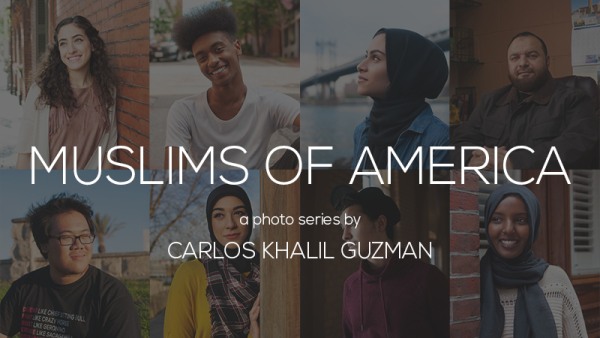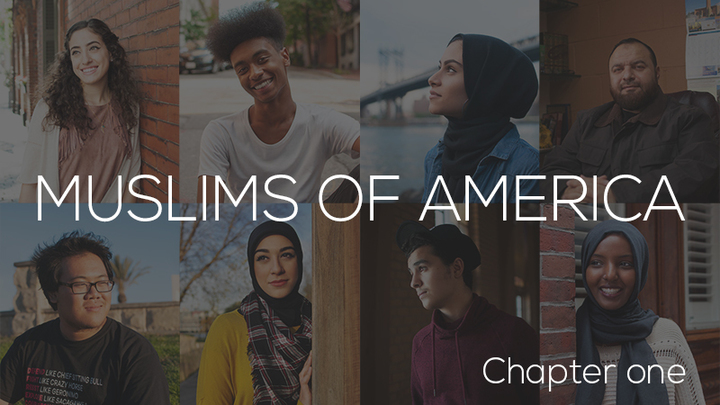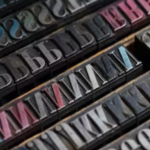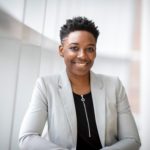By Omar Alnatour
HuffPost, May 29, 2017 —
When I was a toddler, I was terrified of getting my vaccinations. No, terrified is an understatement. My fear was so severe that I’d bolt to the bathroom as soon as the nurse mentioned that it was time for my booster. Each vaccine visit had the same climax: an intense negotiation situation between a frustrated pediatrician and a screaming child on the other side of a locked bathroom door. My mother claims that I had the speed of a racehorse yet the stubbornness of a mule. Eventually, the clinic staff decided it would be wiser to remove the lock on that bathroom door. I ended up getting my shots at the conclusion of each visit, but it took two nurses to hold me down as the third carefully maneuvered the syringe needle past my desperate swinging legs. It’s ironic really, I had a deep-seated fear against the very thing that existed simply for my benefit.
Looking back, I can’t help but laugh at the ridiculousness of my fear because I now realize that vaccines are not only harmless but also an absolute necessity to humanity because they protect us from infections that would otherwise prove fatal. Knowing this, I no longer have a fear of vaccines and I actually am immeasurably grateful for their existence.
There are millions of Muslims living in the United States and I can guarantee you that every single one has either directly faced some sort of hateful discrimination or personally knows of a Muslim that has. According to the Center for the Study of Hate and Extremism, a Muslim American is a victim of a hate crime every three days. Recent polls show that more than half of Americans have an unfavorable view of Islam.
Sadly, Muslims are today’s vaccines. Islamophobia is that toddler.
As a Muslim American who continually strives to do everything I can for the betterment of my community and this nation, it is deeply saddening to see this hatred. Can you imagine being hated simply for existing? Or having to constantly apologize for crimes that you have absolutely no association to? Or seeing your younger sister come home from elementary school in tears from the bullying she faced because the Islamophobia in this nation has become so extreme that it has poisoned the minds of even the most innocent children? Can you imagine that?
Yet just as my fear of vaccinations was caused by my ignorance of them, similar is the case with how Muslims are currently viewed. It’s time we change that.
We have already factually proved to you that Muslims are not terrorists, shown you why you should have no reason to fear us, and explained why it is ridiculous to ask us to apologize for acts of terrorism. The indisputable facts are all there so I have no desire of using statistics to appeal to your sense of reason any further. Instead, this photo series is an appeal to your sense of humanity. Far too often is Islam portrayed in a negative fashion, so each Muslim you’ll meet in this photo series will be sharing a personal anecdote about how Islam has helped them become beacons of light in a society where they are perceived with so much darkness.
Just like vaccines, Muslims have many different origins and come in many different forms. I am so excited to take you all on an unforgettable journey as we travel across all 50 states to introduce you to Muslims from all walks of life that reflect the very fabric of this nation, one that is intricately woven with immigrants from all over the world.

The cover of Carlos Khalil Guzman’s photo series “Muslims in America” Carlos Khalil Guzman
This photo series is in collaboration with photographer Carlos Khalil Guzman, a native New Yorker who started this project two years ago as a way of capturing the diversity of the Muslim community in the United States and bringing to light the beauty and truthfulness of Islam while countering Islamophobia. His simple yet sophisticated style derives from the idea that our planet itself is a work of art and that photography is only an instrument that enables him to capture her beauty. You can check out his portfolio here.
Close your eyes, take a deep breath, empty your mind of all negative thoughts, and open your heart as we take this journey together. Let’s begin:
Linda – College Student – Massachusetts

Be kind, for whenever kindness becomes part of something, it beautifies it. Whenever it is taken from something, it leaves it tarnished – Prophet Muhammad (peace be upon him)
“This hadith holds significant value to me because I’ve always been told that kindness is a weakness. This may have been true for me when I was younger, where I’d get taken advantage of for my kindness but as I got older I realized it is a blessing. A blessing that should have a limit when it interferes with your self worth. Being raised as humble and soft hearted as I was, this kindness I have in my heart is what has brought some of the greatest people into my life.
It has also opened the eyes of a lot of people who know little to nothing about Islam. As I grew older I came to the conclusion that kindness is such a pure and beautiful thing to share with others. Even the thought of making someone happy through your kindness amazes me. Kindness is a beautiful trait to possess that should be part of everyone’s character. I often remind myself that the Prophet Muhammad (peace be upon him) was always kind and encouraged everyone regardless of faith to be kind to each other.”
A hadith is a saying of prophet Muhammad (peace be upon him), a major prophet in Islam who exemplified the Islamic way of life for Muslims.
Israa – Writer/Activist – New York

And for your Lord, be patient – Qur’an Chapter 74 / Verse 7
“I used to be ashamed of admitting that I used to question my faith more than I was “supposed” to. For the majority of my life, I grew up understanding religion through the lens of those who surrounded me; almost to the point of being told, rather than being taught. Being in an Islamic School for seven years made it easier to avoid questions like “what’s that on your head?” and “why do you pray five times a day?”, or “what’s an Allah?”, and “do you believe in Jesus, too?”. It wasn’t so much the lack of exposure that made it less likely for me to answer such questions; rather, it was a silent similarity that was shared amongst my peers and I. I didn’t realize how little I knew about both, myself, and religion, until I grew into my own shoes during my academic and professional careers.
The difference of exposures caused me to question more than just my faith, but my sense of individualism, or lack thereof, as well. Being introduced to aspects that didn’t rely on religion as heavily as I was used to left me in a constant state of limbo. When questioned about my religion by non-Muslims, I felt as though I was reciting answers out of my 10th grade Islamic Studies book. I, too, was telling, and not teaching. It almost felt robotic. I wasn’t surrounded by those of similar faiths, let alone the fundamental ideologies that I’ve depended on for so long, and that induced a false need to distance myself from what I’ve held onto most. Others’ lack of understanding caused me to doubt what I thought I understood. I soon lost my sense of tawwakul (trusting in God’s plan/full reliance on Him), and that is when matters began to spiral into an unyielding series of doubt.
It wasn’t until I was jolted into reconsidering the essence of what it meant to have faith, when I realized how lost I had been in the midst of my struggles. Once one loses hope in what they claim to love, simply because it is no longer as tangible as it used to be, one’s honesty becomes of question. It took time for me to realize and understand that the greatest aspect of my deen (religion) is the concept behind how to hold onto it: Faith. Trusting that my sense of hope stems out of the very root of believing in the unknown. Faith means love. Faith means reliance. Faith means patience.
And for my Lord, I became patient.”
Abdullah – Youth Director – Illinois

Let him who believes in Allah and the Last Day speak good, or keep silent; and let him who believes in Allah and the Last Day be generous to his neighbor; and let him who believes in Allah and the Last Day be generous to his guest – Prophet Muhammad (peace be upon him)
“This hadith teaches us that if we believe in Allah (God) and the Day of Judgment, then we must learn to control our speech and be generous and kind to our neighbors. Through this hadith, the Prophet Muhammad (peace be upon him) is telling us that to be a true believer, we must not only speak the truth and refrain from speaking bad or ill about others but also be kind to our neighbors and guests. It is important to take this as a foundation of our belief; and it is just as important for us to allow our beliefs to manifest in our actions. Imagine all Muslims adhere to this, and speak truth and good about others and are kind to all of their neighbors despite the behavior they might receive from them. This will help negate any bad impressions people might have about Muslims based on what they hear and read in mainstream media. This hadith provides the tools we need to bring about social change and improve people’s characters in Muslims and non-Muslims alike; creating a society where every American including American Muslims not only coexist but work together as a community.”
Kenneth – College Student – California

…And whoever fears Allah (God) – He will make a way out for him. And will provide for him from where he never expected. Whoever relies on God – He will suffice him. God will accomplish His purpose. God has set a measure to all things. – Qur’an Chapter 65 / Verses 2-3
“These verses remind me to always place my trust in God, no matter how hard things get. I have had lots of ups and downs in my life in terms of mental health. During my downs, I remember this verse and it motivates me to keep hope in the future, and to keep hope in myself. It reminds me of the power of prayer, as God can turn any situation around. When we have faith in God, He will set things moving for us in ways that we cannot even imagine.”
Osoul – Nursing Student – New Jersey

Allah does not burden a soul beyond that it can bear- Qur’an Chapter 2 / Verse 286
“This specific ayah (verse) has gotten me through so much in my life, Alhamdulillah (praise be to God). I have had to deal with a lot growing up, whether it was family, illnesses or loss. In a way I was forced to mature at an early age and growing up I always wondered why! You know, like why things happened the way they happened but once I started getting closer to Allah. I realized that asking why things happen the way they do is the wrong approach to life. Instead we should ask Allah to make us strong enough to handle any obstacles thrown our way. Now every time something happens, I read this ayah and I remember that Allah will not burden me with anything I cannot handle. Allah won’t burden me with something that will destroy me, it will only make me stronger for what is ahead inshaAllah (God willing). It is kind of like a little hope, you know, the light at the end of the tunnel.”
Yousef – High School Student – Illinois

Actions are according to intentions, and everyone will get what was intended. Whoever migrates with an intention for Allah and His messenger, the migration will be for the sake of Allah and His messenger. And whoever migrates for the worldly gain or to marry a woman, then his migration will be for the sake of whatever he migrated for – Prophet Muhammad (peace be upon him)
“This hadith has had a great impact in my life. When I was a little younger, I loved to give charity to others in front of people. I wanted to be seen in the public eye as a good kid; it mattered what people thought of me. Little did I know I was only looking to gain the pleasure of the people around me and not the pleasure of Allah (God). I was not thinking whether or not what I was doing made Allah be pleased with me. Then one day I heard this hadith and I knew I had to change the way I did things and my intentions towards doing them. I realized that the way I thought was wrong and that if I wanted to do a good deed; I needed to do it for the sake of Allah only. I understood that only through the pleasure and love of Allah I could gain the love of the people.”
Shadi – College Student – Massachusetts

Heaven lies under the feet of your mother – Prophet Muhammad (peace be upon him)
“This hadith is one of my favorites because it talks about being mindful of our parents. In today’s world, a lot of people do not respect their parents and treat them as if they are nothing. Of course there are times when our parents get on our nerves but before I even think or dare to say anything to them, I remember this hadith and it brings me back to reality. It allows me to do good instead of bad and this has helped me build a stronger relationship with my parents.”
Adna – College Student – Massachusetts

And with Him are the keys of the unseen treasures, none knows them but He; and He knows what is in the land and the sea, and there falls not a leaf but He knows it, nor a grain in the darkness of the earth, nor anything green nor dry but (it is all) in a clear book. – Qur’an Chapter 6 / Verse 59
“This verse has such a huge impact on my understanding of Allah (God) and his infinite power. It is simple, yet very telling. It is impossible to dispute Allah’s supreme power. Allah, all Glory to Him, controls every aspect of life that even the slightest fall of a leaf is left solely to His permission. As everything in life happens through His absolute and immeasurable power, I’ve realized how immense Allah is, it is absolutely mind-blowing that He is behind everything in life from the slightest speck of dust and everything in between. Allah can see the most intimate thoughts on our minds, while simultaneously create a new life, and other uncountable things. God is truly comprehensive and all encompassing. This is what truly makes me a believer.”
Before publishing this piece, I called my pediatric clinic to apologize to the nurse that I remembered from my visits. When she picked up the phone, I introduced myself and asked her if she remembered me. Her laughter filled the phone as she replied, “Oh sweetie, you were one of thousands! No need to apologize, you didn’t know any better.” Her response made me tear up. You know why? Because through contemplating her acceptance of my ignorance based misbehavior as an unpreventable pediatric norm, I realized that Muslims have been forced to accept Islamophobia in a very similar fashion.
We’ve accepted that people will continue to falsely equate terrorism with Islam even though Muslims are the largest victims of terrorism. We’ve accepted that the media will blame “mental illnesses” if a terrorist happens to be white yet blame an entire religion of over 1.6 billion people if that terrorist happens to be Muslim. We’ve accepted that our head scarfed mothers aren’t safe going to the grocery store alone. We’ve accepted that we are likely to be victims of a hate crime. We’ve accepted the hatred.
But it shouldn’t be like this. I may not have known any better when it came to my unfounded fear of vaccinations, but you are not a child. Do not limit your IQ to double digits by letting bigots fill your mind with ignorant hatred when you have the ability to think and analyze information on your own. The next time you hear of Islam being wrongly portrayed as a violent religion, I want you to think of the eight Muslims you met in this piece. Ask yourself, do they seem like violent radicals?
Martin Luther King, Jr. once said, “Darkness cannot drive out darkness; only light can do that. Hate cannot drive out hate; only love can do that.” I cannot promise that this world will be free of hateful people, but I can promise this: our love will always overpower their hate.
If you benefited from this piece, I kindly ask you to share it with those whom you believe will benefit as well. This concludes the first chapter of this series. I hope you enjoyed it because this journey is just beginning.
___________________________________________
Omar Alnatour is a Palestinian-American medical student. He is an aspiring physician who hopes to improve access to medicine and healthcare in war-torn countries all across the world. Omar has worked on multiple humanitarian projects with PCRF, UNRWA, Helping Hand for Relief and Development, United Muslim Relief, and many others all across the world. He is one of the biggest voices on the Palestine-Israel conflict on Twitter with his tweets being featured on Huffington Post, CNN, Buzzfeed, The Independent, Al Jazeera, Vice News, AJ Plus, and Mondoweiss.











